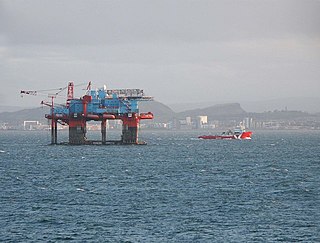Labour laws are those that mediate the relationship between workers, employing entities, trade unions, and the government. Collective labour law relates to the tripartite relationship between employee, employer, and union.

United Kingdom labour law regulates the relations between workers, employers and trade unions. People at work in the UK can rely upon a minimum set of employment rights, which are found in Acts of Parliament, Regulations, common law and equity. This includes the right to a minimum wage of £9.50 for over-23-year-olds from April 2022 under the National Minimum Wage Act 1998. The Working Time Regulations 1998 give the right to 28 days paid holidays, breaks from work, and attempt to limit long working hours. The Employment Rights Act 1996 gives the right to leave for child care, and the right to request flexible working patterns. The Pensions Act 2008 gives the right to be automatically enrolled in a basic occupational pension, whose funds must be protected according to the Pensions Act 1995.

The National Minimum Wage Act 1998 creates a minimum wage across the United Kingdom. From 1 April 2023, the minimum wage is £10.42 for people aged 23 and over, £10.18 for 21- to 22-year-olds, £7.49 for 18- to 20-year-olds, and £5.28 for people under 18 and apprentices.

The Employment Rights Act 1996 is a United Kingdom Act of Parliament passed by the Conservative government to codify existing law on individual rights in UK labour law.

Nethermere Ltd v Gardiner And Another [1984] ICR 612 is a UK labour law case in the Court of Appeal in the field of home work and vulnerable workers. Many labour and employment rights, such as unfair dismissal, in Britain depend on one's status as an "employee" rather than being "self-employed", or some other "worker". This case stands for the proposition that where "mutuality of obligation" between employers and casual or temporary workers exists to offer work and accept it, the court will find that the applicant has a "contract of employment" and is therefore an employee.
United Kingdom agency worker law refers to the law which regulates people's work through employment agencies in the United Kingdom. Though statistics are disputed, there are currently between half a million and one and a half million agency workers in the UK, and probably over 17,000 agencies. As a result of judge made law and absence of statutory protection, agency workers have more flexible pay and working conditions than permanent staff covered under the Employment Rights Act 1996.

Indian labour law refers to law regulating labour in India. Traditionally, the Indian government at the federal and state levels has sought to ensure a high degree of protection for workers, but in practice, this differs due to the form of government and because labour is a subject in the concurrent list of the Indian Constitution. The Minimum Wages Act 1948 requires companies to pay the minimum wage set by the government alongside limiting working weeks to 40 hours. Overtime is strongly discouraged with the premium on overtime being 100% of the total wage. The Payment of Wages Act 1936 mandates the payment of wages on time on the last working day of every month via bank transfer or postal service. The Factories Act 1948 and the Shops and Establishment Act 1960 mandate 15 working days of fully paid vacation leave each year to each employee with an additional 7 fully paid sick days. The Maternity Benefit (Amendment) Act, 2017 gives female employees of every company the right to take 6 months' worth of fully paid maternity leave. It also provides for 6 weeks worth of paid leaves in case of miscarriage or medical termination of pregnancy. The Employees' Provident Fund Organisation and the Employees' State Insurance, governed by statutory acts provide workers with necessary social security for retirement benefits and medical and unemployment benefits respectively. Workers entitled to be covered under the Employees' State Insurance are also entitled to 90 days worth of paid medical leaves. A contract of employment can always provide for more rights than the statutory minimum set rights. The Indian parliament passed four labour codes in the 2019 and 2020 sessions. These four codes will consolidate 44 existing labour laws. They are: The Industrial Relations Code 2020, The Code on Social Security 2020, The Occupational Safety, Health and Working Conditions Code, 2020 and The Code on Wages 2019.

The working time regulations 69 is a statutory instrument in UK labour law which implements the EU Working Time Directive 2003. It does not extend to Northern Ireland.

Revenue and Customs Commissioners v Annabel's Ltd [2009] EWCA Civ 361 is a UK labour law case regarding the treatment of tips under the National Minimum Wage Act 1998. It led to the abolition of tips being considered part of wages for the purpose of assessing compliance with the national minimum wage.
MacCartney v Oversley House Management [2006] IRLR 514 is a UK labour law case regarding the National Minimum Wage Act 1998.
Walton v Independent Living Organisation [2003] EWCA Civ 199 is a UK labour law case regarding the National Minimum Wage Act 1998.

British Nursing Association v Inland Revenue[2002] EWCA Civ 494 is a UK labour law case regarding the National Minimum Wage Act 1998.
Robinson-Steele v RD Retail Services Ltd (2006) C-131/04 is a European labour law and UK labour law case concerning the Working Time Directive, which is relevant for the Working Time Regulations 1998.

British Airways plc v Williams (2011) C-155/10 is a UK labour law and EU law decision by the European Court of Justice regarding the right to holidays with pay, which is found in the Universal Declaration on Human Rights article 24, the Working Time Directive and the Working Time Regulations 1998. Williams itself was decided under analogous rules found in the Civil Aviation Regulations 2004. It held that variable components in pay, such as bonuses, must be included in the amount of pay people receive while they are on holiday.

Autoclenz Ltd v Belcher [2011] UKSC 41 is a landmark UK labour law and English contract law case decided by the Supreme Court of the United Kingdom, concerning the scope of statutory protection of rights for working individuals. It confirmed the view, also taken by the Court of Appeal, that the relative bargaining power of the parties must be taken into account when deciding whether a person counts as an employee, to get employment rights. As Lord Clarke said,
the relative bargaining power of the parties must be taken into account in deciding whether the terms of any written agreement in truth represent what was agreed and the true agreement will often have to be gleaned from all the circumstances of the case, of which the written agreement is only a part. This may be described as a purposive approach to the problem.
France v James Coombes & Co [1929] AC 496 is an old UK labour law case, concerning the definition of ‘employee’ for the purpose of section 8 of the Trade Boards Act 1909 and the Trade Boards Act 1918.

Russell v Transocean International Resources Ltd [2011] UKSC 57 is a UK labour law case, concerning the interpretation of the Working Time Directive. It is notable that Lord Hope remarked that the right to paid holidays is probably best interpreted as requiring that workers may take a whole week at a time, rather than individual days.

Uber BV v Aslam [2021] UKSC 5 is a landmark case in UK labour law and company law on employment rights. The UK Supreme Court held the transport corporation, Uber, must pay its drivers the national living wage, and at least 28 days paid holidays, from the time that drivers log onto the Uber app, and are willing and able to work. The Supreme Court decision was unanimous, and upheld the Court of Appeal, Employment Appeal Tribunal, and Employment Tribunal. The Supreme Court, and all courts below, left open whether the drivers are also employees but indicated that the criteria for employment status was fulfilled, given Uber's control over drivers.

Pimlico Plumbers Ltd v Smith [2018] UKSC 29 is a UK labour law case, concerning the status of a highly paid plumber as, at least, a worker, for the purpose of holiday pay and wages claims.

Royal Mencap Society v Tomlinson-Blake [2021] UKSC 8 is a UK labour law case, concerning the right to be paid, when an employer constrains their worker's freedom.










